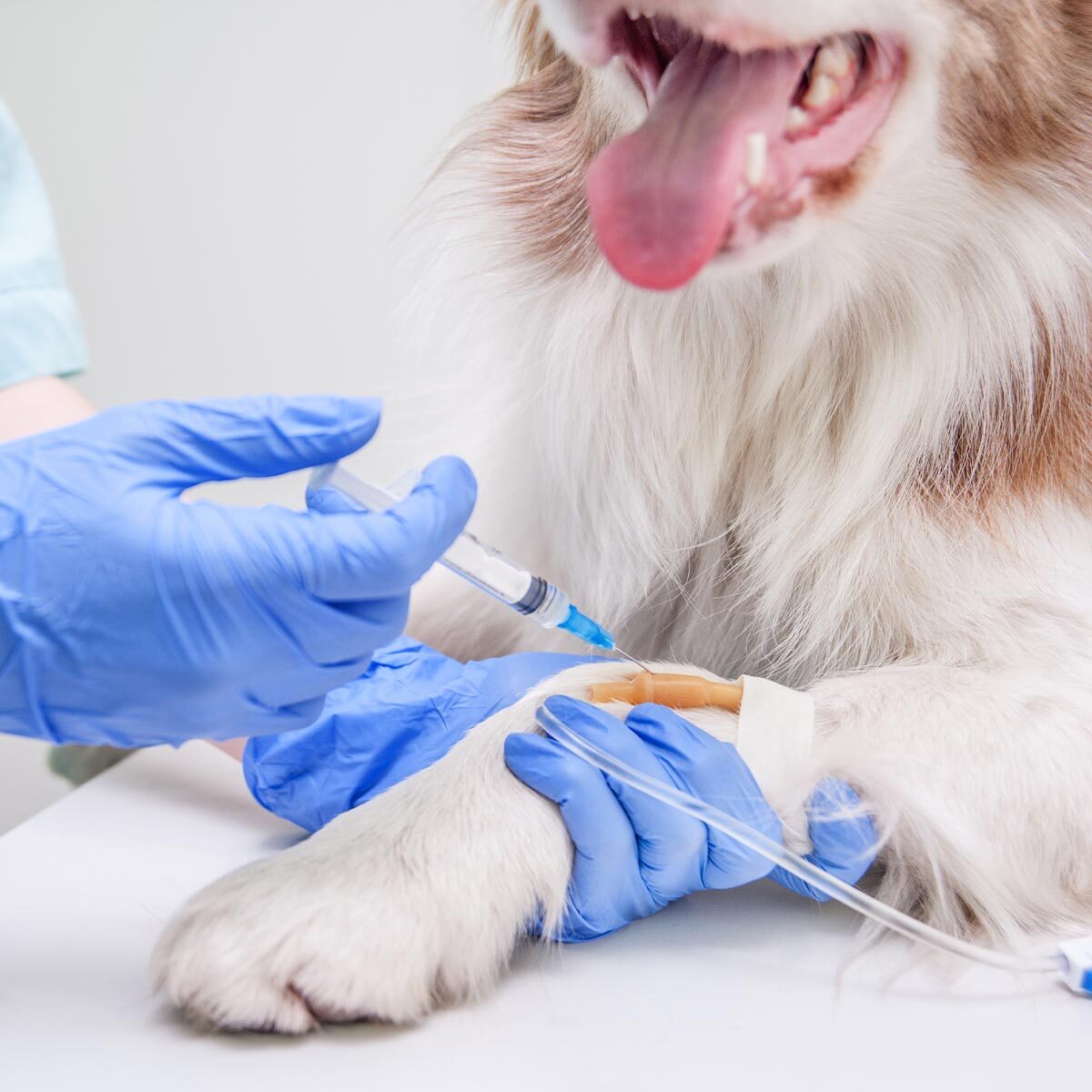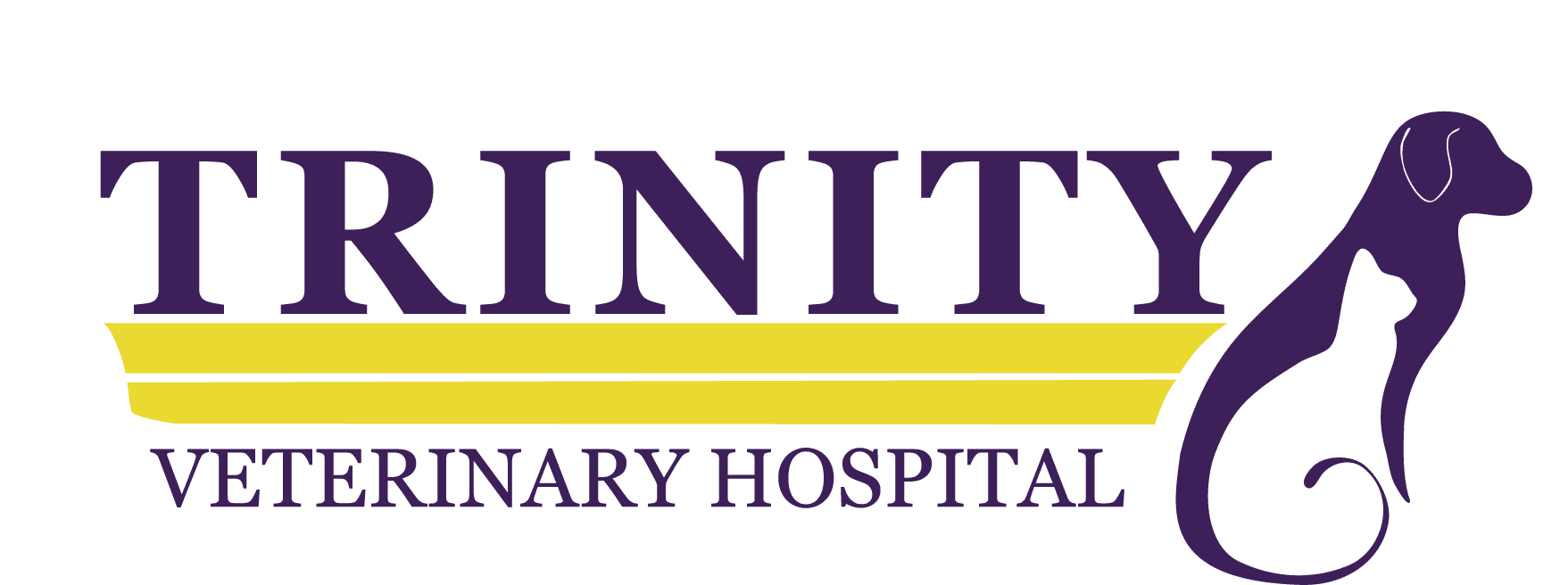
At Trinity Veterinary Hospital, we understand how important it is to have a complete understanding of your pet’s health. With our comprehensive in-house laboratory services, we can quickly identify underlying health issues before they develop into bigger problems. From bloodwork to microscopy, we offer a wide range of diagnostic tests that help us assess your pet's condition with precision and speed.
Is your pet due for routine screening tests? If so, schedule their diagnostic testing by calling us at (405) 533-0001 or booking an appointment online.
In-House Laboratory Services
Our state-of-the-art in-house laboratory enables us to perform a variety of tests quickly and accurately, giving us valuable insights into your pet's health. Having these diagnostic tools on-site means faster results and more immediate care for your pet.
Bloodwork
Bloodwork is a vital tool in veterinary medicine, giving us a deeper look at your pet’s internal health. It helps us detect infections, organ dysfunction, and other conditions that may not be visible during a physical exam.
At our in-house lab, we perform a variety of tests, including:
- Complete Blood Counts (CBC): A CBC checks for anemia, infections, inflammatory conditions, and immune disorders.
- Serum Chemistry Panels: Chemistry panels evaluate organ function, focusing largely on the liver and kidneys.
- Thyroid Function Tests: Thyroid-specific tests help diagnose thyroid imbalances.
- Specialized Panels: Specialized panels screen for certain conditions or drug levels, such as hormone levels, clotting disorders, phenobarbital levels, and much more.
Regular bloodwork performed at your pet's annual wellness visit allows us to catch potential issues early and tailor treatments to keep them healthy.
Cytology
Cytology is the microscopic examination of cells, fluids, and tissues to diagnose infections, inflammation, and abnormal growths.
What cytology helps us detect:
- Skin & Ear Infections: Samples of ear debris, skin cells, or fur aids in identifying bacteria, yeast, or parasites.
- Lumps & Growths: A fine needle aspirate of a lump or bump will help determine if a mass is benign (non-cancerous) or malignant (cancerous).
- Inflammation & Infection: By evaluating a cell, fluid, or tissue sample, we can spot early indicators of inflammation or infection that can guide an effective treatment plan.
With cytology, we can quickly assess a sample and begin treatment right away, giving your pet the best chance at a speedy recovery.
Fecal Exams
A simple stool sample can reveal a lot about your pet’s health. Fecal exams help us detect parasites, bacteria, and other gastrointestinal issues that may not show obvious symptoms.
When performing a fecal exam, we check for:
- Intestinal Parasites: Roundworms, hookworms, tapeworms, Giardia, and coccidia are common parasites that can infect your pet's GI tract.
- Abnormal Bacteria or Yeast: Some bacteria is always present in the GI tract, but large or abnormal populations of bacteria or yeast can be signs of infection or digestive imbalance.
- Malabsorption Issues: Subtle clues can be found in a fecal sample that indicate food allergies or gut disorders.
Routine fecal screenings are especially important for puppies, kittens, and pets who spend time outdoors, as these groups are most commonly exposed to intestinal parasites.
Urinalysis
A urinalysis helps us assess your pet’s kidney function, hydration levels, and urinary tract health. It’s a quick and painless test that can detect:
- Urinary Tract Infections (UTIs): Signs of bacteria, white blood cells, or blood in the urine are important clues that typically indicate a UTI or inflammation is present.
- Kidney Disease: Abnormal protein levels or dilute urine signify that the kidneys are not filtering the blood correctly, nor are they concentrating urine properly.
- Diabetes: Presence of glucose in the urine likely indicates uncontrolled diabetes.
- Urinary Crystals or Stones: Urinary crystals or stones caused by an unbalanced urine pH, dehydration, and other health issues can lead to painful blockages if left untreated.
If your pet has frequent accidents, difficulty urinating, or changes in drinking habits, a urinalysis can provide crucial answers.
Schedule Your Pet’s Diagnostic Testing Today
At Trinity Veterinary Hospital, we believe that the key to great care is early detection. If you’d like to learn more about our diagnostic services or schedule an appointment, please contact us at (405) 533-0001 or book an appointment online. We’re here to help you keep your pet healthy and happy, with the peace of mind that comes from knowing they are receiving the best care possible.
